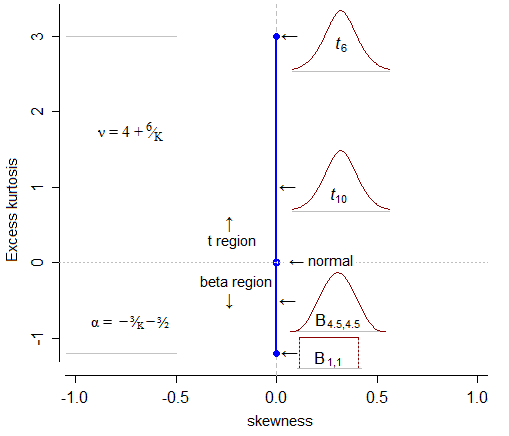I am aiming to run simulations in order to estimate the influence of the distribution of $Y$ (independent variable) on a certain binary outcome $X$ (dependent variable). $Y$ must always has a mean of 0 and must be symmetric (skew = 0) but I'd like to vary independently the variance (eventually from 1 to 250) and the kurtosis (from a square to a narrow peak, eventually from -1.2 to 3) of $Y$.
I've been looking at a variety of distributions but I found none that seemed suited for this kind purpose.
Can you help me choosing a distribution from which I can easily change the variance and kurtosis while keeping the mean and the skew at zero?
EDITS
More descriptions
I realized there were still open questions (not that many though). My preferences are:
- mean = 0
- variance: can vary
- symmetric: Yes (I didn't realized at first that skew=0 doesn't imply symmetry)
- kurtosis: can vary independently of the variance
- number of modes: unimodal (not strict on this issue)
- Bounded: Doesn't matter.
- continuous/discrete: Doesn't matter. I will have to take a discrete approximations if it is continuous but I don't mind
- Tail Behaviour: I am quite interested in the impact of the tail. I thought that by allowing kurtosis to change was enough as a description but maybe I should describe higher moments...
Context
I am working in the field of population genetics and I am interested in the influence of the variance and kurtosis of the dispersal kernel ($Y$) on the probability of fixation of a given allele ($X$). I am not interested to simulate cases where the distribution of dispersal is skewed and the mean should always be at the position of the deme of the parents (this can very easily solved by a simple addition anyway). Previous studies have argued (without showing any evidence) that variance and kurtosis are important and empirical studies showed that the dispersal kernel is often leptokurtic. Not sure I correctly addressed your comment. Did I? Thank you

